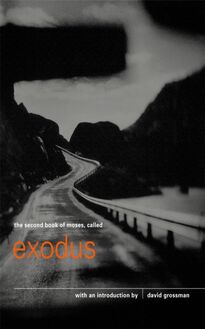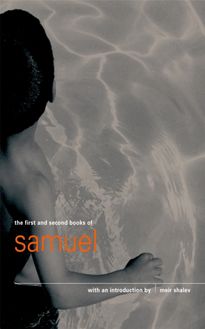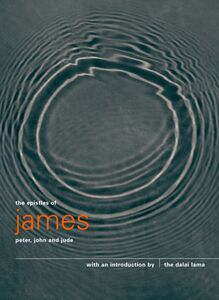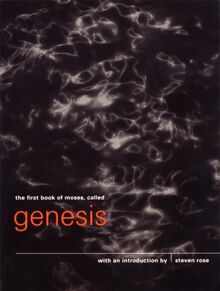-
 Univers
Univers
-
 Ebooks
Ebooks
-
 Livres audio
Livres audio
-
 Presse
Presse
-
 Podcasts
Podcasts
-
 BD
BD
-
 Documents
Documents
-
- Cours
- Révisions
- Ressources pédagogiques
- Sciences de l’éducation
- Manuels scolaires
- Langues
- Travaux de classe
- Annales de BEP
- Etudes supérieures
- Maternelle et primaire
- Fiches de lecture
- Orientation scolaire
- Méthodologie
- Corrigés de devoir
- Annales d’examens et concours
- Annales du bac
- Annales du brevet
- Rapports de stage
La lecture à portée de main
Vous pourrez modifier la taille du texte de cet ouvrage
Découvre YouScribe en t'inscrivant gratuitement
Je m'inscrisDécouvre YouScribe en t'inscrivant gratuitement
Je m'inscrisEn savoir plus
Vous pourrez modifier la taille du texte de cet ouvrage
En savoir plus

Description
Sujets
Informations
| Publié par | Canongate Books |
| Date de parution | 01 janvier 1999 |
| Nombre de lectures | 0 |
| EAN13 | 9780857860972 |
| Langue | English |
| Poids de l'ouvrage | 1 Mo |
Informations légales : prix de location à la page 0,0040€. Cette information est donnée uniquement à titre indicatif conformément à la législation en vigueur.
Extrait
Contents
Title Page a note about pocket canons introduction by nick cave the gospel according to st mark 2 3 4 5 6 7 8 9 10 11 12 13 14 15 16 about the author Copyright
a note about pocket canons
The Authorised King James Version of the Bible, translated between 1603–11, coincided with an extraordinary flowering of English literature. This version, more than any other, and possibly more than any other work in history, has had an influence in shaping the language we speak and write today. Presenting individual books from the Bible as separate volumes, as they were originally conceived, encourages the reader to approach them as literary works in their own right.
The first twelve books in this series encompass categories as diverse as history, fiction, philosophy, love poetry and law. Each Pocket Canon also has its own introduction, specially commissioned from an impressive range of writers, which provides a personal interpretation of the text and explores its contemporary relevance.
introduction by nick cave
When I bought my first copy of the Bible, the King James version, it was to the Old Testament that I was drawn, with its maniacal, punitive God, that dealt out to His long-suffering humanity punishments that had me drop-jawed in disbelief at the very depth of their vengefulness. I had a burgeoning interest in violent literature coupled with an unnamed sense of the divinity in things and, in my early twenties, the Old Testament spoke to that part of me that railed and hissed and spat at the world. I believed in God, but I also believed that God was malign and if the Old Testament was testament to anything, it was testament to that. Evil seemed to live so close to the surface of existence within it, you could smell its mad breath, see the yellow smoke curl from its many pages, hear the blood-curdling moans of despair. It was a wonderful, terrible book and it was sacred scripture.
But you grow up. You do. You mellow out. Buds of compassion push through the cracks in the black and bitter soil. Your rage ceases to need a name. You no longer find comfort watching a whacked-out God tormenting a wretched humanity as you learn to forgive yourself and the world. That God of Old begins to transmute in your heart, base metals become silver and gold, and you warm to the world.
Then, one day, I met an Anglican vicar and he suggested that I give the Old Testament a rest and to read Mark instead. I hadn’t read the New Testament at that stage because the New Testament was about Jesus Christ and the Christ I remembered from my choir-boy days was that wet, all-loving, etiolated individual that the church proselytised. I spent my pre-teen years singing in the Wangarafta Cathedral Choir and even at that age I recall thinking what a wishy-washy affair the whole thing was. The Anglican Church: it was the decaf of worship and Jesus was their Lord.
‘Why Mark ?’ I asked.
‘Because it’s short,’ he replied.
Well, at that time I was willing to give anything a go so I took the vicar’s advice and read it, and The Gospel According to Mark just swept me up.
Here, I am reminded of that picture of Christ, painted by Holman Hunt, where He appears, robed and handsome, a lantern in His hand, knocking on a door. The door to our hearts, presumably. The light is dim and buttery in the engulfing darkness. Christ came to me in this way, lumen Christi , with a dim light, a sad light, but light enough. Out of all the New Testament writings – from the four Gospels , through the Acts , and the complex, driven Letters of Paul , to the chilling, sickening Revelation – it is Mark’s Gospel that has truly held me.
Scholars generally agree that Mark’s was the first of the four Gospels to be written. Mark took from the mouths of teachers and prophets the jumble of events that comprised Christ’s life and fixed these events into some kind of biographical form. He did this with such breathless insistence, such compulsive narrative intensity, that one is reminded of a child recounting some amazing tale, piling fact upon fact, as if the whole world depended upon it, which of course, to Mark, it did. ‘Straightway’ and ‘immediately’ link one event to another, everyone ‘runs’, ‘shouts’, is ‘amazed’, inflaming Christ’s mission with a dazzling urgency. Mark’s Gospel is a clatter of bones, so raw, nervy and lean on information that the narrative aches with the melancholy of absence. Scenes of deep tragedy are treated with such a matter-of-factness and raw economy they become almost palpable in their unprotected sorrowfulness. Mark’s narrative begins with the Baptism and ‘immediately’ we are confronted with the solitary figure of Christ, who is baptised in the River Jordan and driven into the wilderness. ‘And he was there in the wilderness forty days, tempted of Satan; and was with the wild beasts; and the angels ministered unto him’ (1:13). This is all Mark says of the Temptation, but the verse is typically potent owing to its mysterious simplicity and spareness.
Christ’s forty days and forty nights in the wilderness also say something about His aloneness, for when Christ takes on His ministry around Galilee and in Jerusalem, He enters a wilderness of the soul, where all the outpourings of His brilliant, jewel-like imagination are in turns misunderstood, rebuffed, ignored, mocked and vilified and would eventually be the death of Him. Even His disciples, who we would hope would absorb some of Christ’s brilliance, seem to be in a perpetual fog of misunderstanding, following Christ from scene to scene, with little or no comprehension of what is going on around them. So much of the frustration and anger that seems at times to almost consume Christ is directed at His disciples and it is against their persistent ignorance that Christ’s isolation seems at its most complete. It is Christ’s divine inspiration versus the dull rationalism of those around Him that gives Mark’s narrative its tension, its drive. The gulf of misunderstanding is so vast that His friends ‘lay hold of Him’ thinking, ‘He is beside himself’ (3:21). The scribes and Pharisees, with their monotonous insistence on the Law, provide the perfect springboard for Christ’s luminous words. Even those Christ heals betray Him, as they run to the towns to report the doings of the miraculous healer, after Christ has insisted that they tell no one. Christ disowns His own mother for her lack of understanding. Throughout Mark , Christ is in deep conflict with the world. He is trying to save, and the sense of aloneness that surrounds Him is at times unbearably intense. Christ’s last howl from the cross is to a God He believes has forsaken Him, ‘Eloi, Eloi, lama sabachthani.’
The rite of Baptism – the dying of one’s old self to be born anew – like so many of the events in Christ’s life, is already flavoured metaphorically by Christ’s death and it is His death on the cross that is such a powerful and haunting force, especially in Mark . His preoccupation with it is all the more obvious if only because of the brevity with which Mark deals with the events of His life. It seems that virtually everything that Christ does in Mark’s narrative is in some way a preparation for His death – His frustration with His disciples and His fear that they have not comprehended the full significance of His actions, the constant taunting of the church officials, the stirring up of the crowds, His miracle-making so that witnesses will remember the extent of His divine power. Clearly Mark is concerned primarily with the death of Christ, to such an extent that Christ appears completely consumed by His imminent demise, thoroughly shaped by His death.
The Christ that emerges from Mark , tramping through the haphazard events of His life, had a ringing intensity about Him that I could not resist. Christ spoke to me through His isolation, through the burden of His death, through His rage at the mundane, through His sorrow. Christ, it seemed to me, was the victim of humanity’s lack of imagination, was hammered to the cross with the nails of creative vapidity.
The Gospel According to Mark has continued to inform my life as the root source of my spirituality, my religiousness. The Christ that the Church offers us, the bloodless, placid ‘Saviour’ – the man smiling benignly at a group of children, or calmly, serenely hanging from the cross – denies Christ His potent, creative sorrow or His boiling anger that confronts us so forcefully in Mark . Thus the Church denies Christ His humanity, offering up a figure that we can perhaps ‘praise’, but never relate to. The essential humanness of Mark ’s Christ provides us with a blueprint for our own lives, so that we have something that we can aspire to, rather than revere, that can lift us free of the mundanity of our existences, rather than affirming the notion that we are lowly and unworthy. Merely to praise Christ in His Perfectness, keeps us on our knees, with our heads pitifully bent. Clearly, this is not what Christ had in mind. Christ came as a liberator. Christ understood that we as humans were for ever held to the ground by the pull of gravity – our ordinariness, our mediocrity – and it was through His example that He gave our imaginations the freedom to rise and to fly. In short, to be Christ-like.
the gospel according to st mark
The beginning of the gospel of Jesus Christ, the Son of God; 2 as it is written in the prophets, ‘Behold, I send my messenger before thy face, which shall prepare thy way before thee. 3 The voice of one crying in the wilderness, "Prepare ye the way of the Lord, make his paths straight."’ 4 John did baptize in the wilderness, and preach the baptism of repentance for the remission of sins. 5 And there went out unto him all the land of Judæa, and they of Jerusalem, and were all baptized of him in the river of Jordan, confessing their sins.
6 And John was clothed with camel’s hair, and with a girdle of a skin ab
-
 Univers
Univers
-
 Ebooks
Ebooks
-
 Livres audio
Livres audio
-
 Presse
Presse
-
 Podcasts
Podcasts
-
 BD
BD
-
 Documents
Documents
-
Jeunesse
-
Littérature
-
Ressources professionnelles
-
Santé et bien-être
-
Savoirs
-
Education
-
Loisirs et hobbies
-
Art, musique et cinéma
-
Actualité et débat de société
-
Jeunesse
-
Littérature
-
Ressources professionnelles
-
Santé et bien-être
-
Savoirs
-
Education
-
Loisirs et hobbies
-
Art, musique et cinéma
-
Actualité et débat de société
-
Actualités
-
Lifestyle
-
Presse jeunesse
-
Presse professionnelle
-
Pratique
-
Presse sportive
-
Presse internationale
-
Culture & Médias
-
Action et Aventures
-
Science-fiction et Fantasy
-
Société
-
Jeunesse
-
Littérature
-
Ressources professionnelles
-
Santé et bien-être
-
Savoirs
-
Education
-
Loisirs et hobbies
-
Art, musique et cinéma
-
Actualité et débat de société
- Cours
- Révisions
- Ressources pédagogiques
- Sciences de l’éducation
- Manuels scolaires
- Langues
- Travaux de classe
- Annales de BEP
- Etudes supérieures
- Maternelle et primaire
- Fiches de lecture
- Orientation scolaire
- Méthodologie
- Corrigés de devoir
- Annales d’examens et concours
- Annales du bac
- Annales du brevet
- Rapports de stage




















